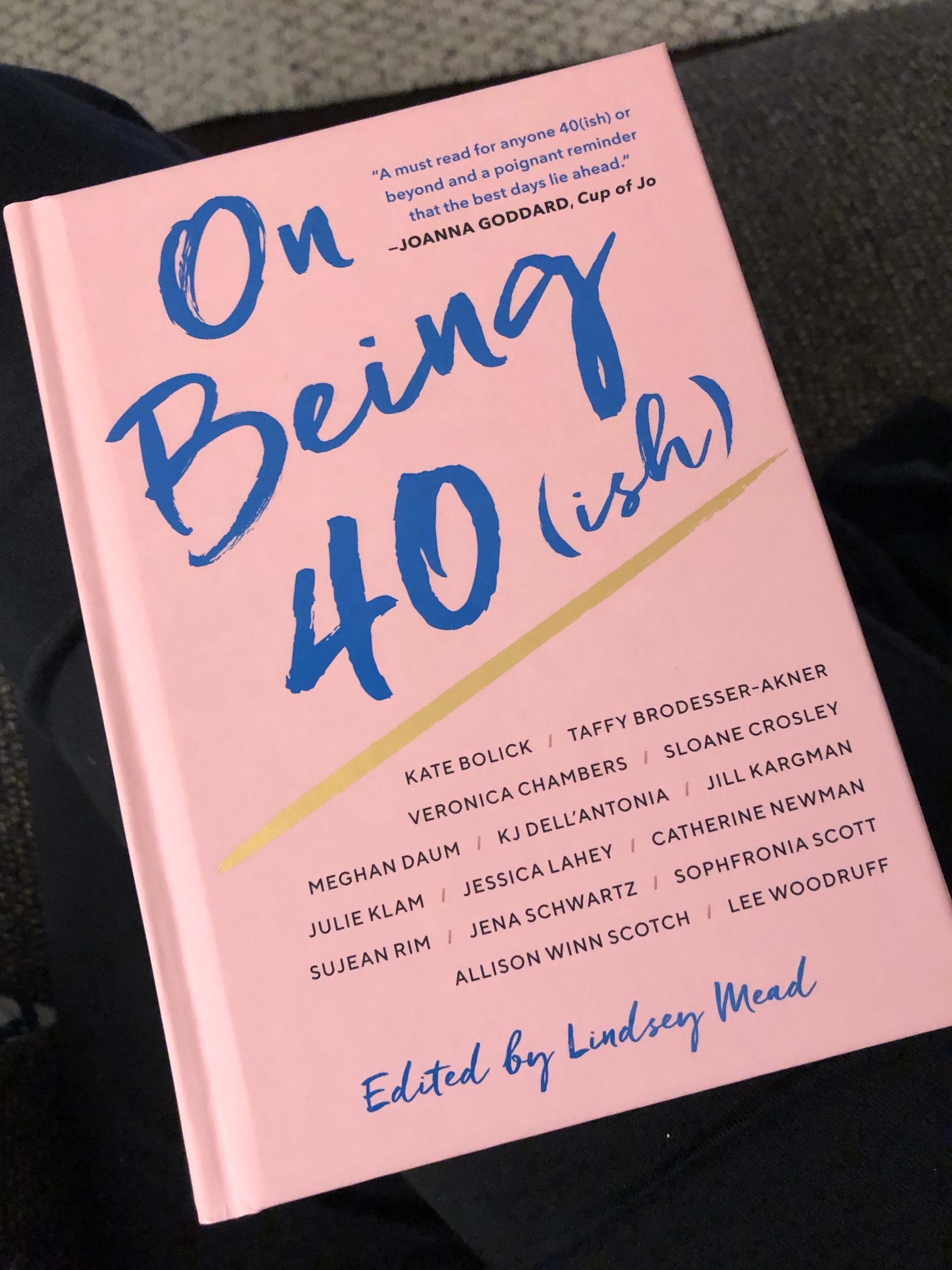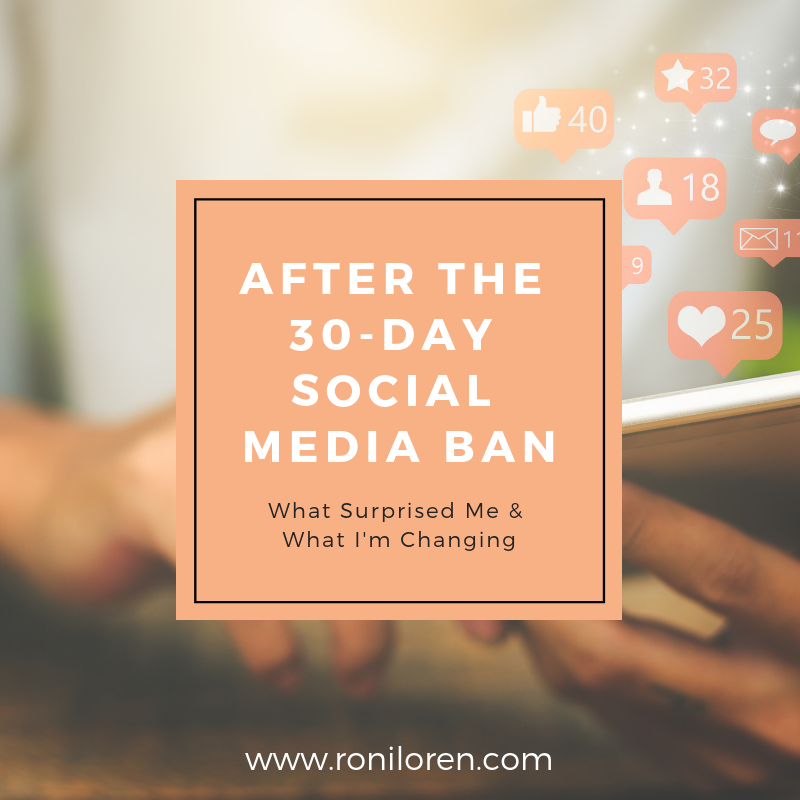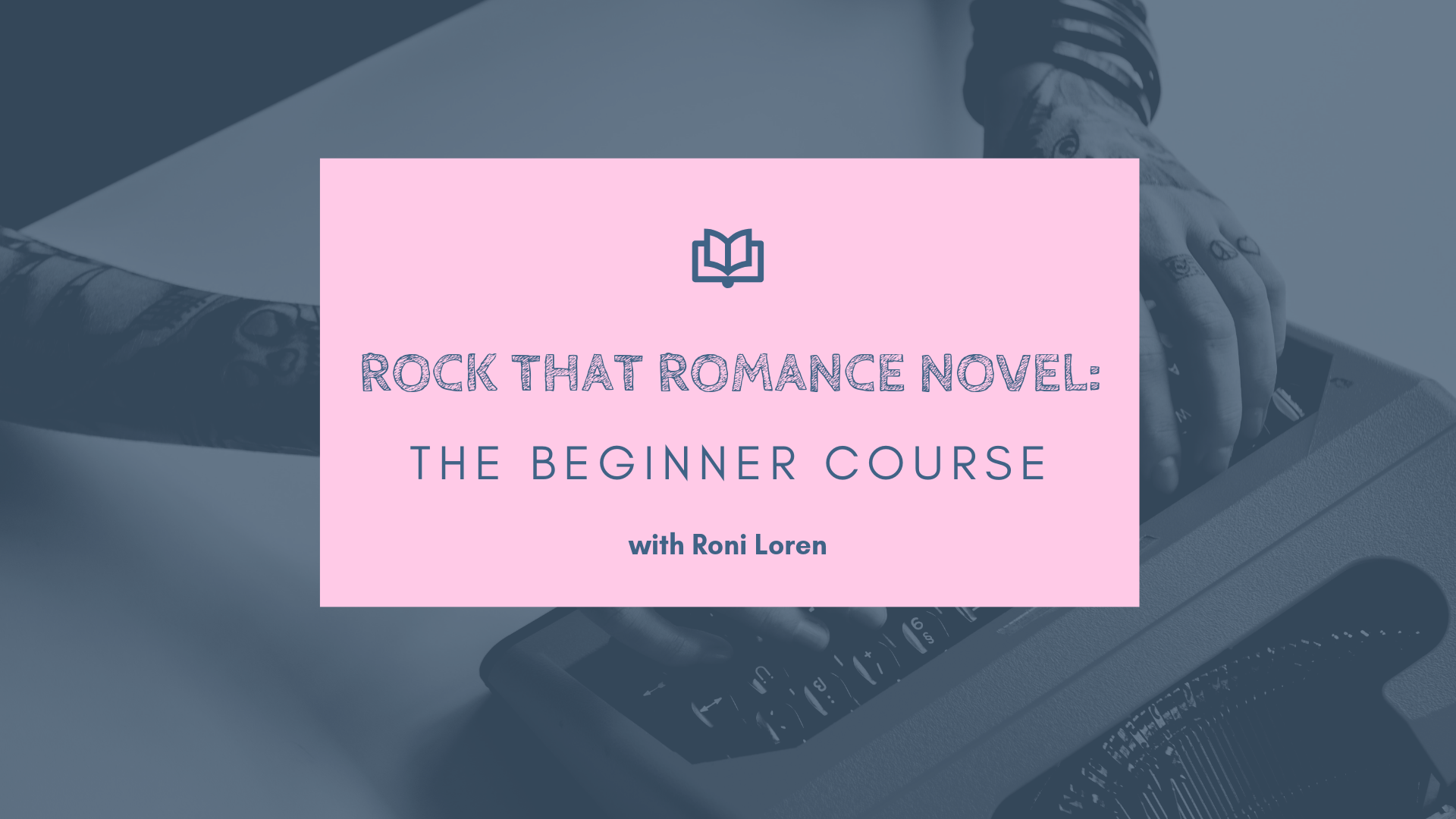You know how sometimes random things come together in a way that makes you think of something in a different light? That’s partly a definition of creativity—seemingly disparate things/ideas being brought together to create something new. Well, yesterday I had a few things coincide that got me thinking about how I want to handle my online presence.
As many of you know, I’ve been thinking a lot about social media and distraction lately (and really for a number of years now.) Hence my 30-Day Social Media Declutter (which I wrote about here) and what I learned from it (which I wrote about here.) So this is a topic that is constantly buzzing at a low hum in my mind.
Yesterday, a few things happened that got my gears grinding about this topic again. First, I attended an online workshop about how to do social media well as an author. I enjoyed the workshop and appreciated the information. Much of it was about picking which platforms best suit you and how to be fun and on brand as an author. This can include things like posting funny memes, cute pet photos, and entertaining videos. Things many of us enjoy. Things that many authors do well.
However, when I imagined myself looking for fun cat videos to post or finding cute memes, I kind of winced inwardly because—wow, I see that distraction train roaring down the tracks straight for me. I don’t think I can trust myself to go searching for those things because a) I’ll get lost in the internet black hole (I mean, what’s more tempting than endless cute animal videos?) and b) my perfectionism will make me search endlessly for the “perfect” one to post. Plus, I don’t post photos that aren’t mine or aren’t paid for after getting sued years ago over using a photo on my blog. So, I listened to the advice but also knew that I couldn’t heed some of it. But let’s put a pin in that thought for a moment. Because…
Later that night, I was reading the essay collection On Being 40(ish). This was such a great read, and I really got a lot out of many of the essays. I know I’ll be revisiting a few of them. But one near the end called “I Don’t Have Time for This” by Sophronia Scott really resonated with me. In it, she talks about how her friend called her to be miserable about the election results together. Here’s an excerpt:
“My friend has called me to commiserate. But I’m not miserable. I haven’t given a thought to being miserable. The sun is pouring through the windows of my yellow kitchen, my family is healthy, my friend is on the phone, and I’m glad to hear her voice. So I will try to figure out how to gently put into words the overpowering feeling I have more and more as I walk through middle age: I don’t have time for this.”
She goes on to talk about how her son was a Sandy Hook student who was a few doors down from the shooting and survived and how that gave her new perspective on how precious time is and how it isn’t guaranteed. So, she chooses to focus on the joy in her life and not wallow in the misery. Not sticking her head in the sand but choosing joy in her every day life.
So what could this possibly have to do with me writing about social media? Well, here’s where my brain went. Life is precious. We get our particular amount of time on this planet and then it’s done. I’ll turn forty this year. What do I want to do with the rest of my time? How do I want to spend those limited minutes? Which led me to…
Do I want to spend my time searching for cute dog memes to post?
And secondly…
Do I want to contribute to using up YOUR minutes with trying to keep you looking at my page and distracting you from your life?
The answer felt really clear in that moment. I’m not here to distract you. I don’t want that to be part of my job. Yes, I want to write the best books I can, and some people might see reading romance as a distraction, but I see reading a good story as an experience or a chosen respite. Time reading a book rarely feels like wasted time to me—unless the book was terrible, lol. Even watching TV shows usually doesn’t feel like wasted time to me. A good story well told is something that makes me happier. But when I get lost in the internet hole of social media or random videos or top ten posts, I rarely feel better for it.
And frankly, with all my blogging about reclaiming focus and taking breaks from social media and doing device-free summers, it feels hypocritical of me to post fluff to keep algorithms fed and you seeing my page. Note: This is absolutely not a judgment of anyone who does post those things or the countless number of people who enjoy the content. My husband starts many of his days with cat videos because that gives him a happiness boost before he goes to work. There’s nothing wrong with that. This is not about what should be posted or shouldn’t. This is a personal decision about what I feel aligns with who I am and what I want to give you.
When you visit my blog or read my newsletter or see something on my Facebook page, I want you to feel like you’ve gotten something of value out of it. It doesn’t always have to be serious, of course. Despite the tone of this post, I’m not a particularly serious person. Fun and laughter have great value. But I also don’t want my contribution to be filler that I’m posting just to keep the algorithms happy and eyeballs on my sites. I want it to be things that aren’t on a million other pages. My goal for my blog is for you to walk away with something to think about or a great book recommendation or a new TV show to try out. My goal for my newsletter is to make it good enough that people would actually pay to subscribe to it (I’m not going to charge, don’t worry. But that’s how I judge how much I like a newsletter: would I pay a subscription fee for this?)
Basically, I want to add value not distract.
And yes, of course I want you to buy my books. I really, really do! :) My family likes to eat and, you know, have a roof over our heads and stuff. (So high maintenance!) But I have to believe that if I put everything I have into writing quality stories (which involves me concentrating and not spending too much time on social media either) that you will still buy my books—even if I’m not constantly in your feed reminding you that I’m alive and have something to sell.
How about this? I work to give you good things to read and aim not to waste your time. You occasionally buy one of my books and tell your friends to read them. Deal? ;)
My promise to you:
I won’t blog unless I feel I have something interesting to talk about or offer you.
My newsletter will remain focused on providing you with quality content. It’s full of these posts plus extra content including what I’m reading, what books I’ve bought lately, and behind the scenes photos.
All book recommendations on this blog or any of my social media channels will continue to be non-sponsored content. I don’t accept books for review, so anything I recommend is being recommended because I enjoyed it.
I will continue to write the best stories I can (which sometimes means being a slacker on social media.)
I will do my best not to waste your time and will be grateful for any time you choose to share with me.
Thank you for being here.
And if you want to keep up with my posts along with exclusive content, sign up for my newsletter. This is, by far, the easiest way to keep up with me, no social media checking required.
Have a great weekend!
What newsletter would you pay for? I’m always looking for great new ones to check out. :)













